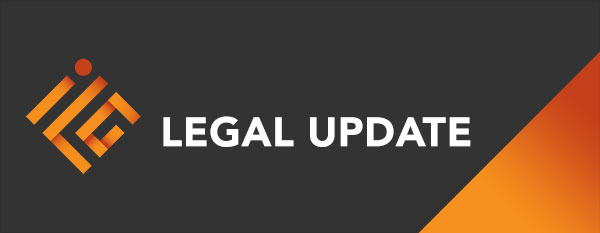By: Claire Sweetman
Revised EEOC Guidance on Harassment in the Workplace
In September 2023, the Equal Employment Opportunity Commission (EEOC) released their Proposed Enforcement Guidance on Harassment in the Workplace.[1] The proposed guidance explains the legal standards and employer liability applicable to harassment claims under the federal employment discrimination laws enforced by the EEOC. These laws protect covered employees from harassment based on race, color, religion, sex (including sexual orientation, transgender status, and pregnancy), national origin, disability, age (40 and older) or genetic information.[2] The issuance of the proposed guidance signaled that revised guidance may be issued sometime in 2024. Such a revision would be consistent with the EEOC’s Strategic Enforcement Plan Fiscal Years 2024-2028, and would mark the first update on harassment guidance in over two decades.[3]
Employers’ DEI Policies Face Legal Challenges
The U.S. Supreme Court’s decision in Students for Fair Admissions v. Harvard Coll., 600 U.S. 181 (2023) held that race-based affirmative action programs in college admissions processes violate the Equal Protection Clause of the Fourteenth Amendment.[4] Although the Court ruled that the decision is limited to college admission policies, Justice Gorsuch argued in his concurring opinion the similarities between Title VI and Title VII of the Civil Rights Act of 1964.[5] Since the Court’s ruling, employers have been faced with threats of legal action regarding their diversity, equity, and inclusion (DEI) policies using the framework established by the Court in Students for Fair Admissions.[6]
In the month following the Court’s decision, Attorneys General from thirteen states as well as one U.S. Senator[7] sent letters to business leaders, warning them about the potential risks associated with their DEI programs.[8] The letters argue that using racial preferences or quotas to combat discrimination are prohibited by Title VII. Specifically, the letters provided examples of allegedly illegal hiring practices, such as racial hiring quotas and preferences for contractors with diverse staff or minority ownership. On the other hand, twenty-one Attorneys General from other states wrote opposing letters, emphasizing the legality and importance of employers’ DEI initiatives.[9] These letters argued that the Court’s decision does not prohibit organizations from recruiting from a diverse candidate pool in order to address historical racial inequities and create opportunities for a diverse and engaging workforce.
As litigation continues to mount, employers should remember that DEI programs and initiatives and affirmative action programs are not the same.[10] Employers are free to recruit from a diverse pool of applicants as well as place value on non-traditional paths, educational backgrounds, and the unique experiences of applicants. However, any factor should be tied to job-related factors and must be race-neutral.[11]
[1] https://www.eeoc.gov/proposed-enforcement-guidance-harassment-workplace#_Toc133663562
[2] https://www.eeoc.gov/newsroom/eeoc-proposes-updated-workplace-harassment-guidance-protect-workers
[3] https://www.whiteandwilliams.com/resources-alerts-Employment-Law-2024-Whats-Here-and-Whats-on-the-Horizon
[4] https://www.supremecourt.gov/opinions/22pdf/20-1199_hgdj.pdf
[5] https://www.whiteandwilliams.com/resources-alerts-Employment-Law-2024-Whats-Here-and-Whats-on-the-Horizon
[6] Id.
[7] Senator Tom Cotton of Arkansas.
[8] https://www.fordharrison.com/shaking-the-foundations-of-dei-the-impact-of-the-students-for-fair-admissions-decision-on-corporate-diversity-initiatives
[9] Id.
[10] https://www.lanepowell.com/Our-Insights/267602/Not-Just-Academic-How-The-Supreme-Courts-Opinion-on-Affirmative-Action-in-College-Admissions-May-Impact-Employers-Recruiting-Hiring-and-DEI-Programs#:~:text=Students%20for%20Fair%20Admissions%20involved,qualified%20workers%2C%20regardless%20of%20background.
[11] Id.

